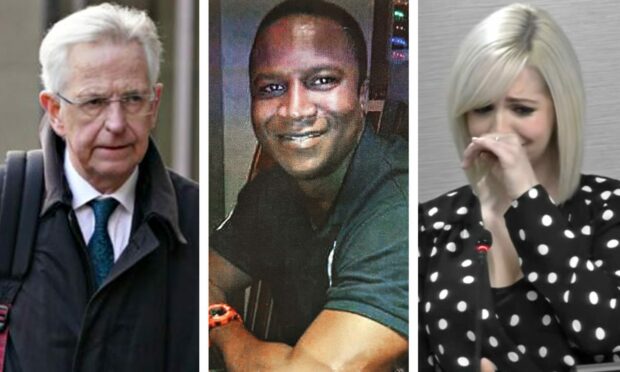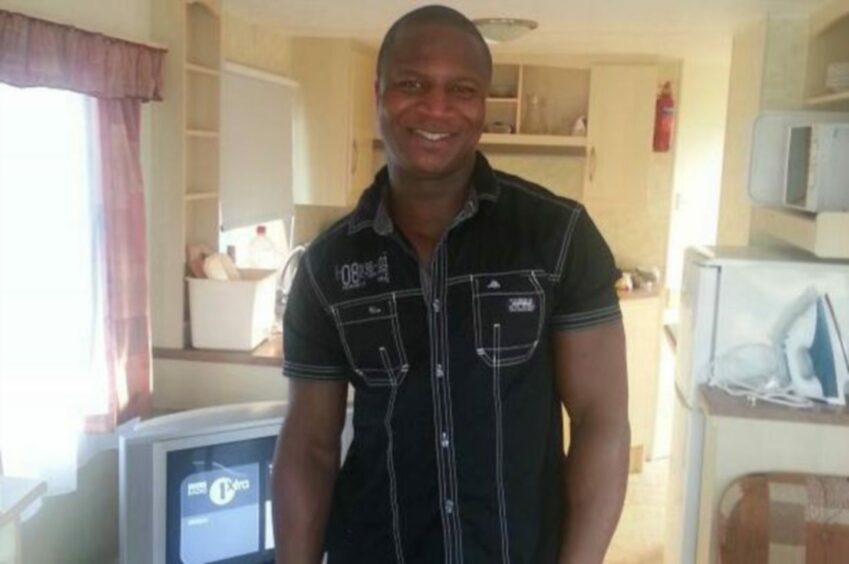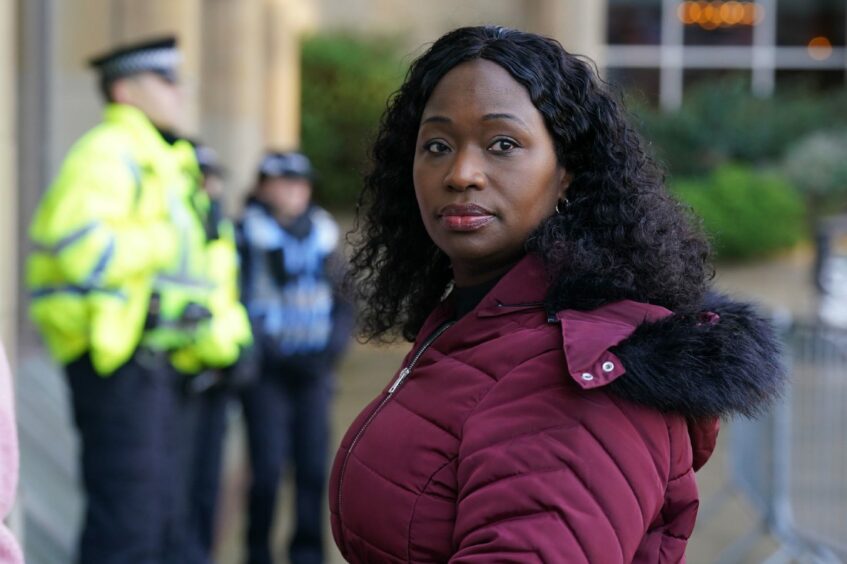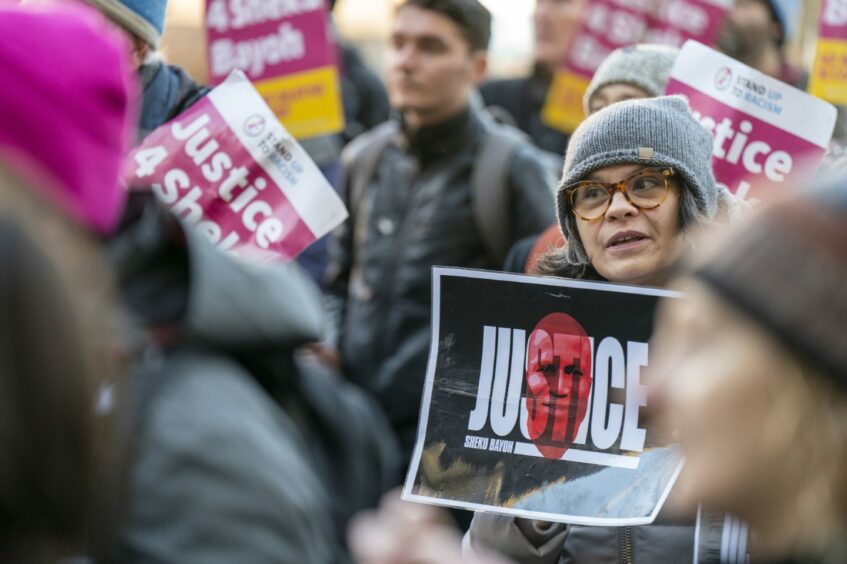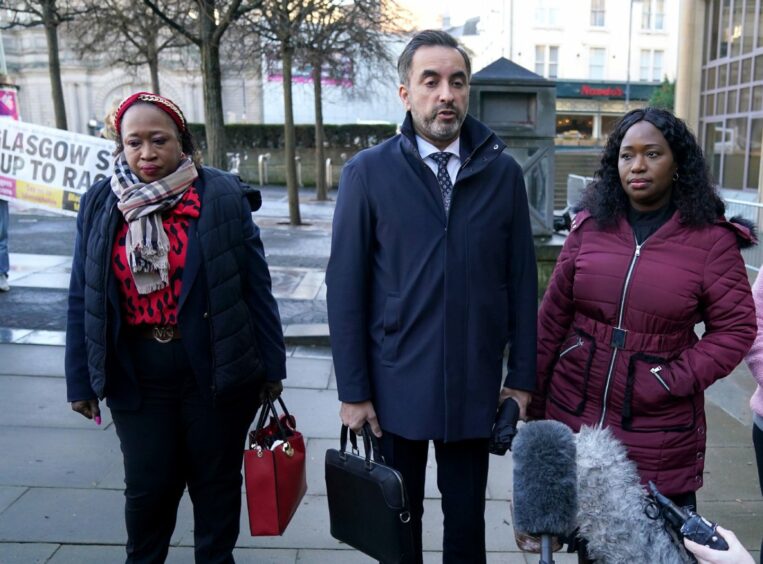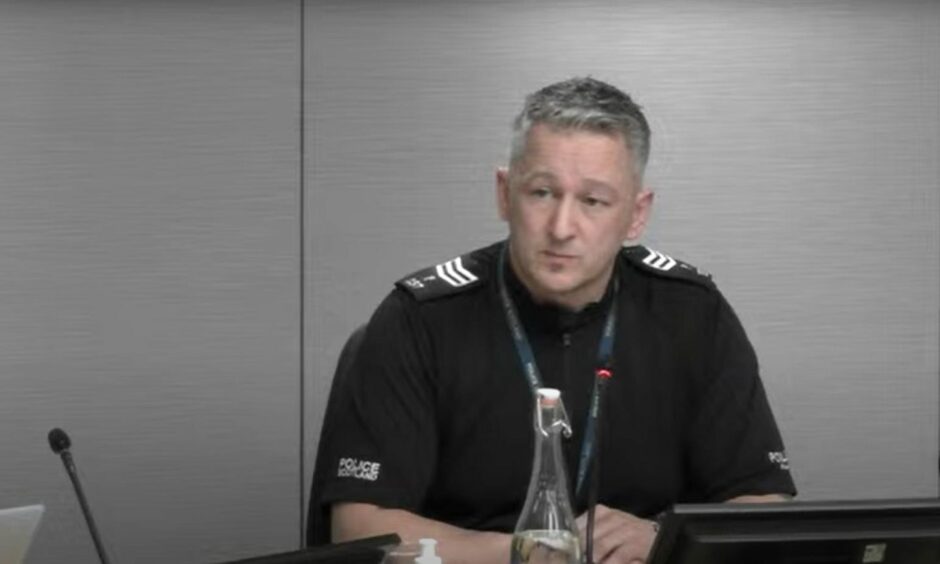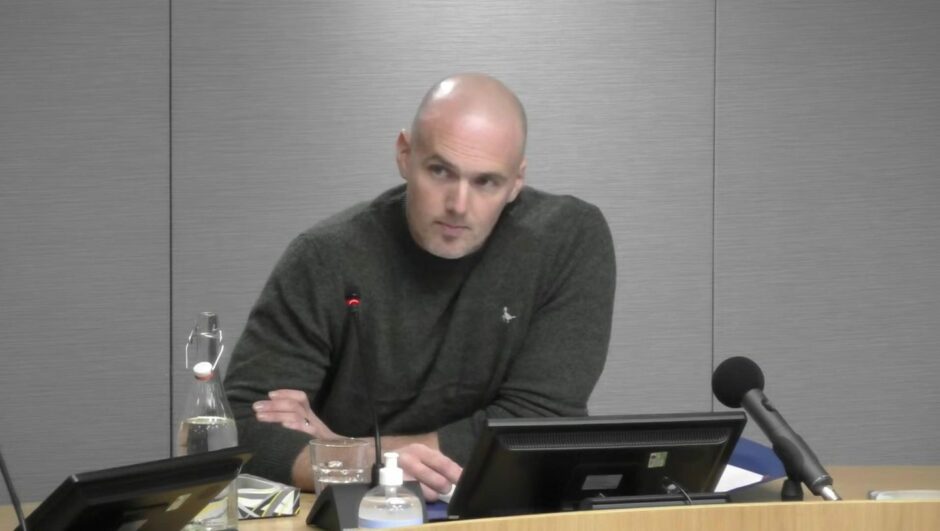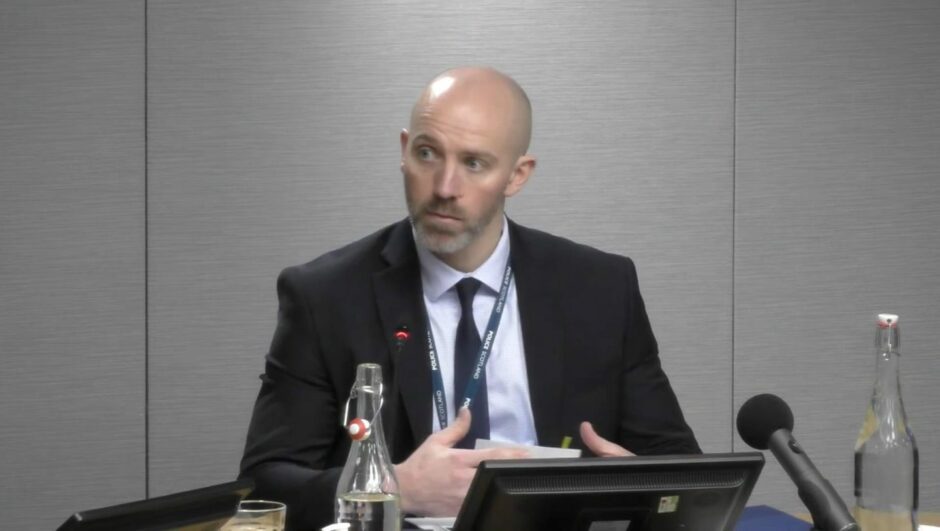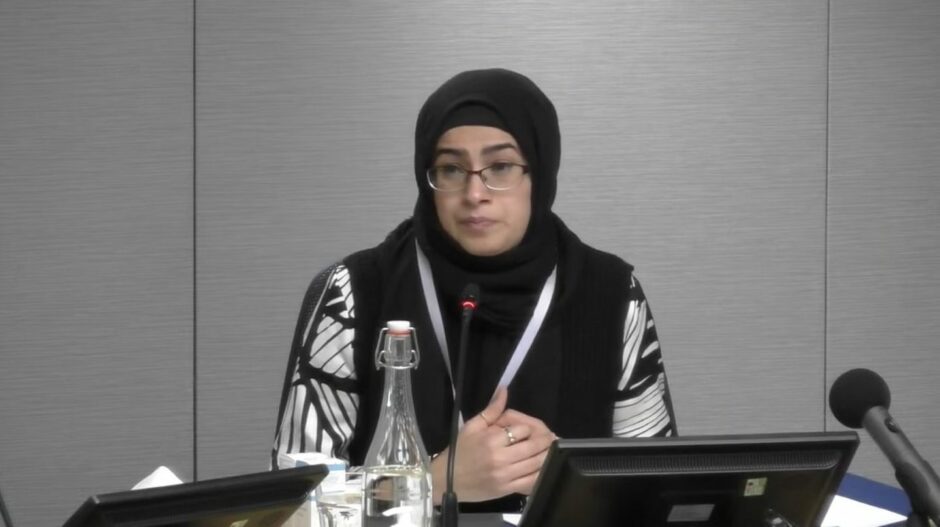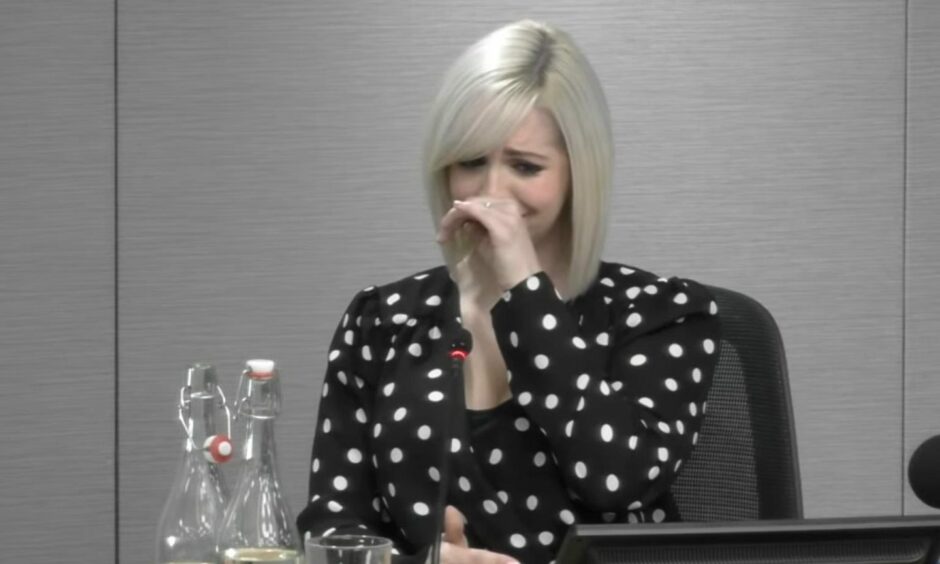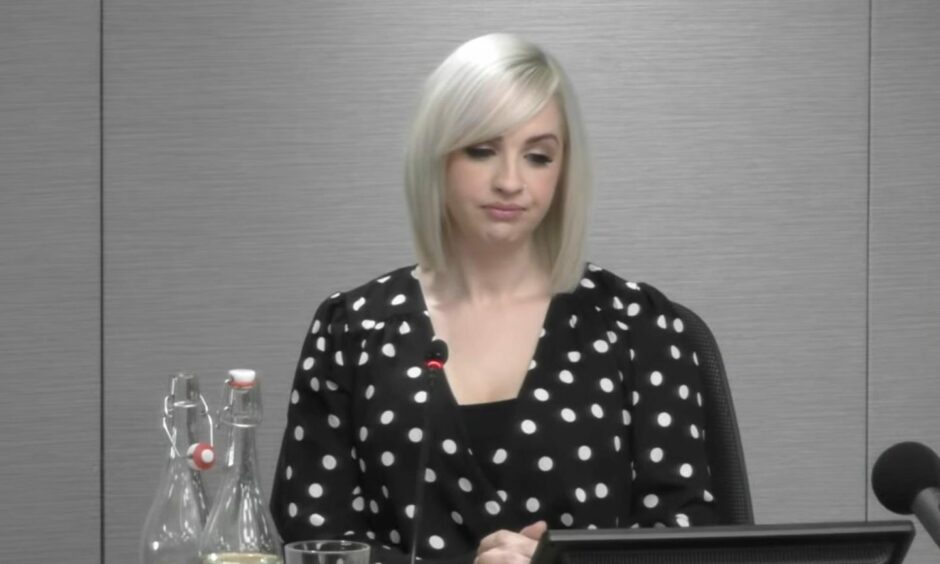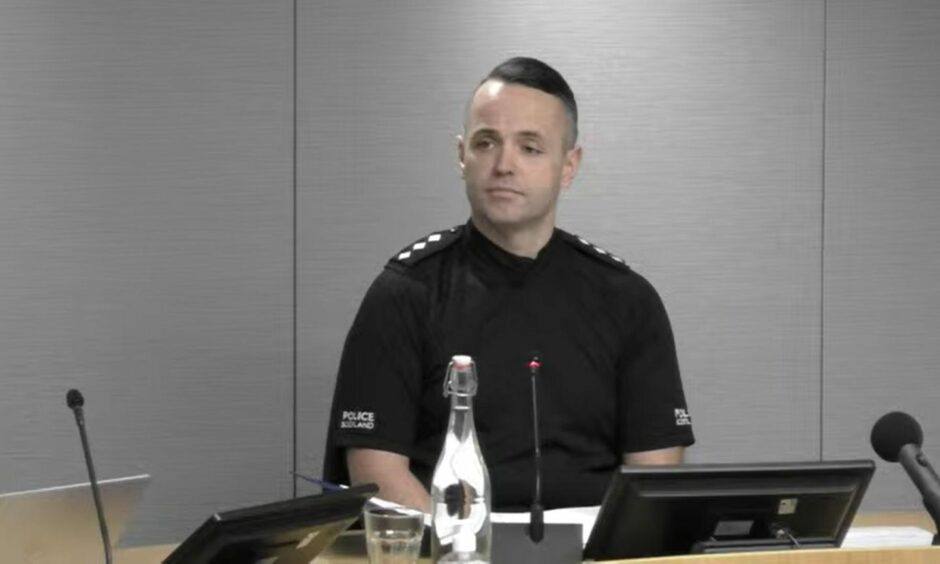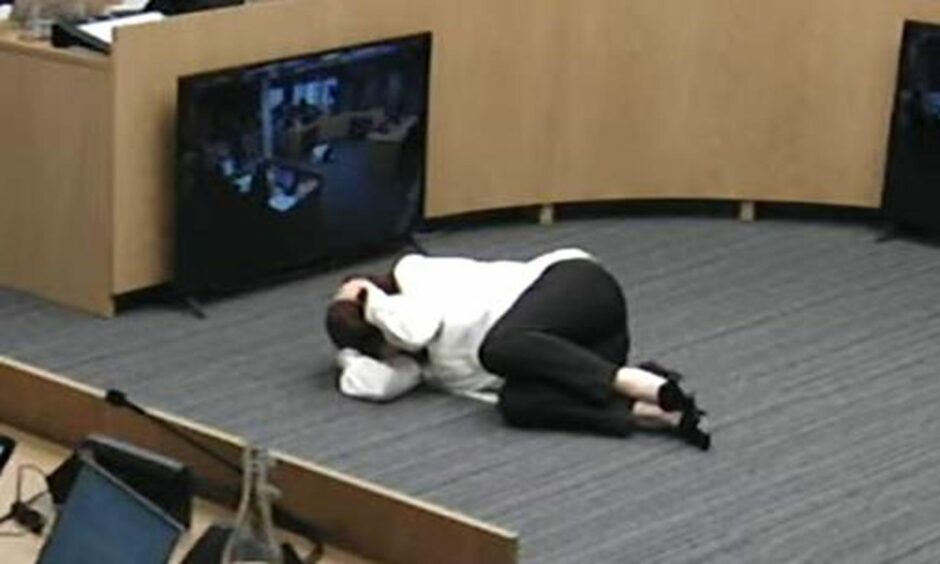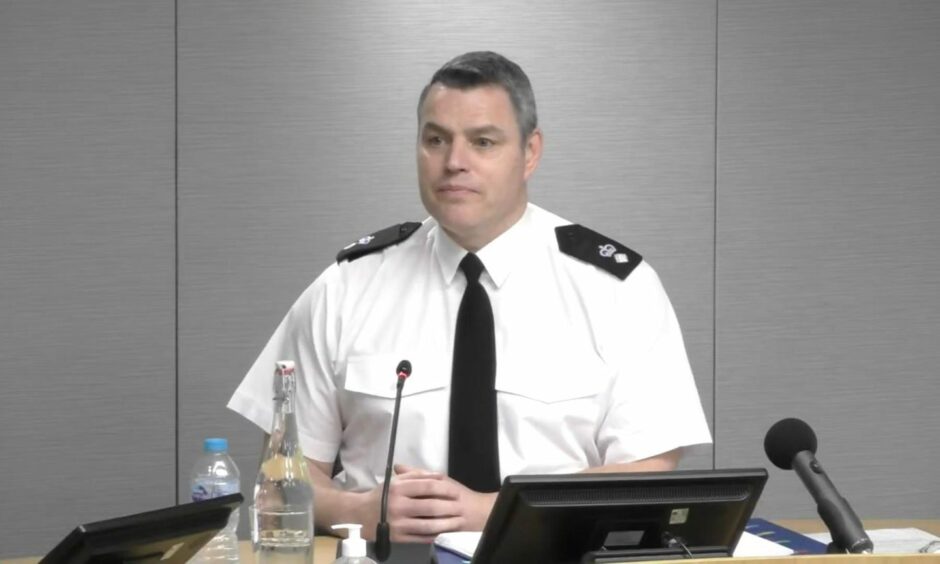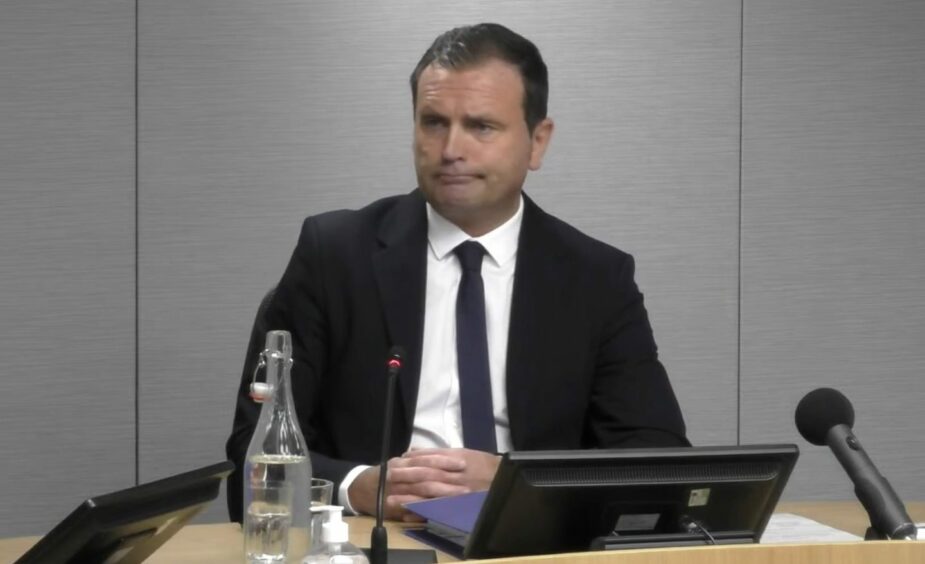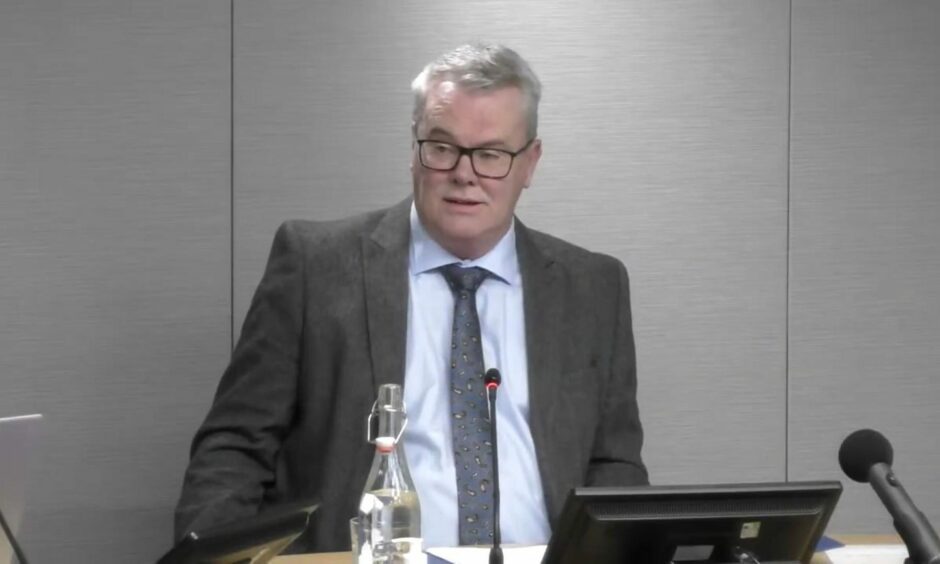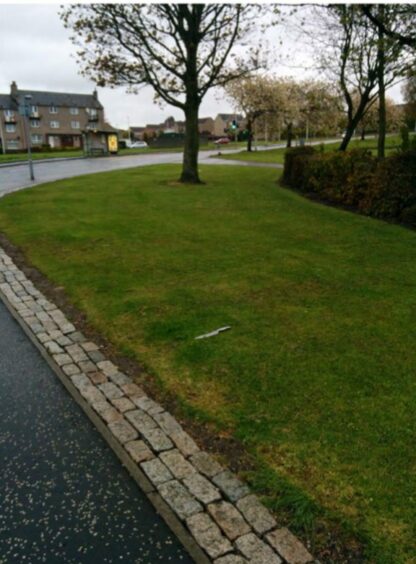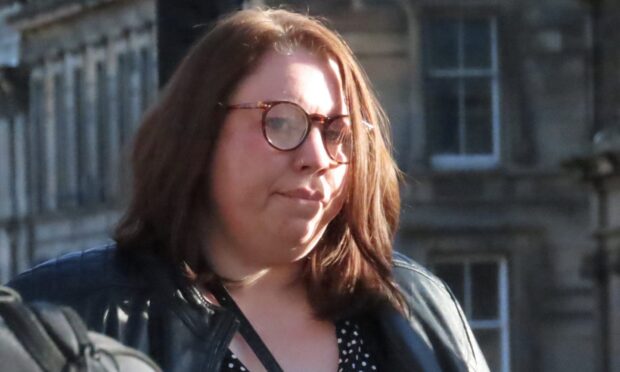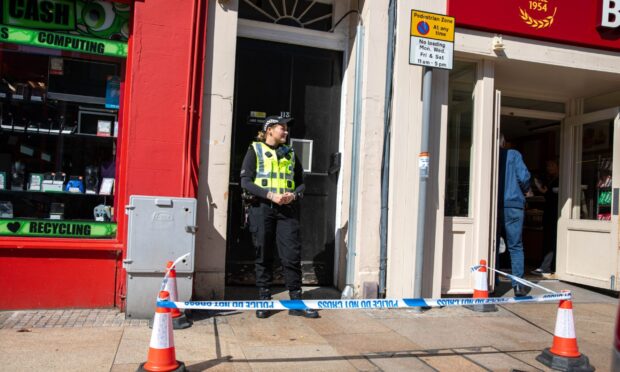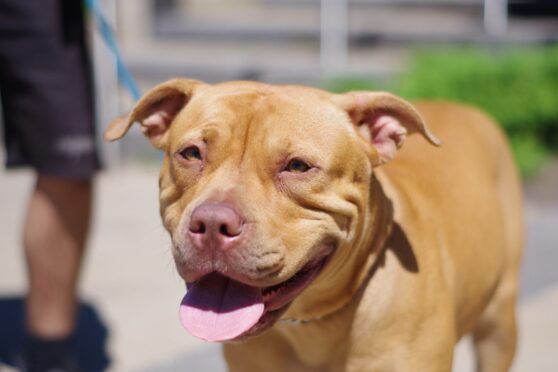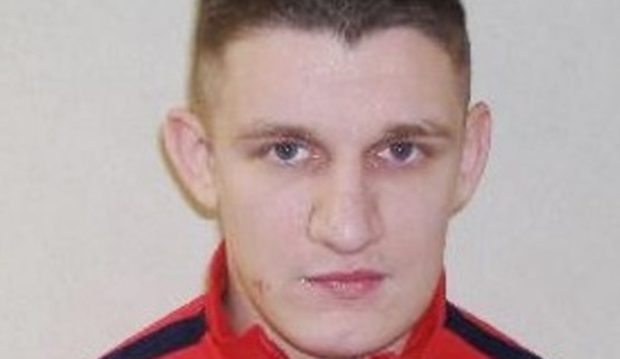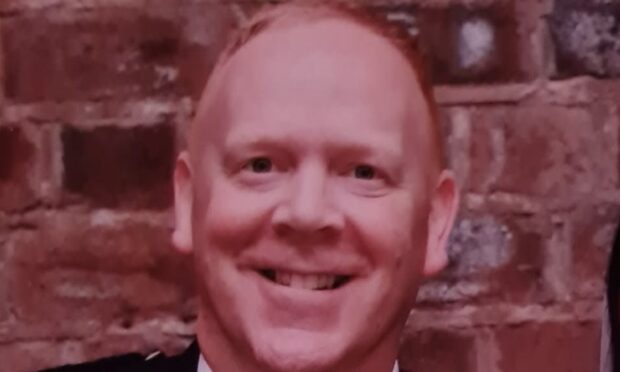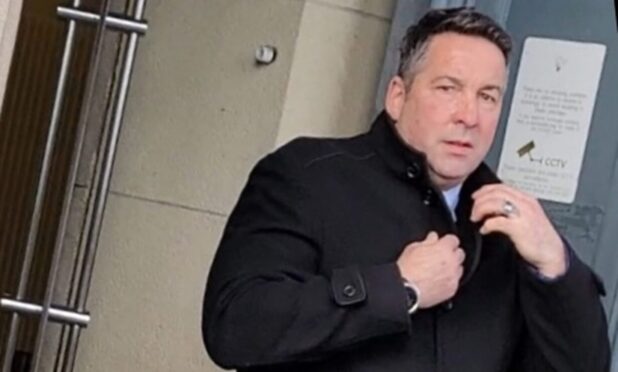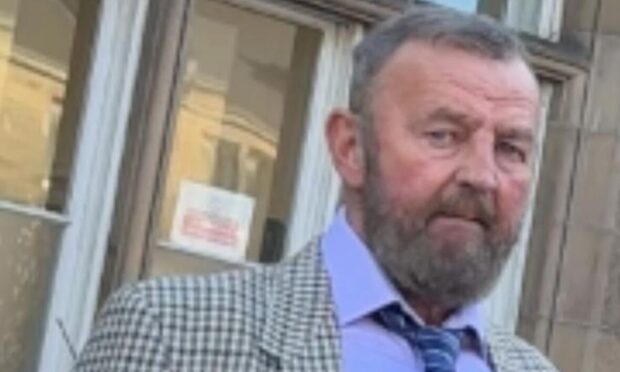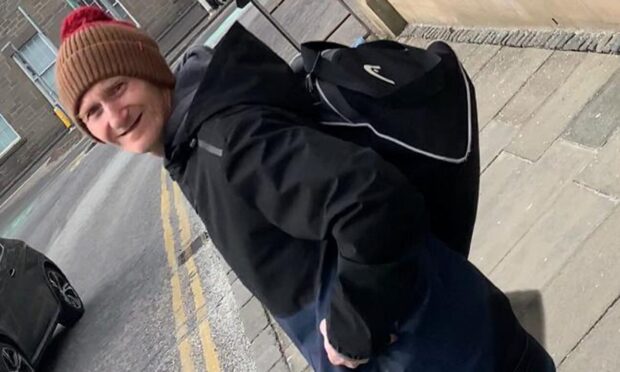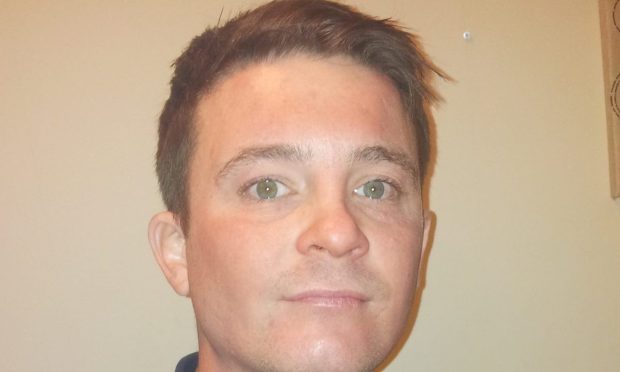The public inquiry into the death of Sheku Bayoh in Kirkcaldy will re-convene for another evidence session on May 9.
The 31-year-old dad-of-two died in police custody as officers restrained him on Hayfield Road on May 3 2015 after reports he was in public with a knife.
The inquiry aims to examine the circumstances surrounding his death and whether race was a factor.
The background, who is involved and the inquiry structure can be viewed here.
The evidence from the opening hearings, up until November 2022, is summarised here.
From January to March, the inquiry before Lord Bracadale heard about the events immediately after Mr Bayoh’s death, including the initial police actions and how family and friends learned of the tragedy.
The Courier has summarised below what was heard in those sessions.
Kadi Johnston
Sheku Bayoh’s sister moved to Kirkcaldy at the age of 22 and encouraged her brother to join her.
Mr Bayoh had been at her house the day before his death, celebrating his niece’s birthday.
She said he had no concerns about his behaviour and he had been helping clean up after the party.
During her evidence in January, she told the inquiry she and her family were given conflicting accounts of events on Hayfield Road.
She said initially the family was told Mr Bayoh had been found in the street and police were looking for two men but in later visits officers told her he had been arrested.
Mrs Johnson also said the behaviour described by police officers was not consistent with her brother’s usual character.
She was clear the the officers had used the term “forceful arrest”, despite the term not appearing in a statement to the family in an officer’s notebook.
Former Chief Superintendent Garry McEwan also visited the family and was the first to tell them of allegations Mr Bayoh had “stamped” on PC Nicole Short.
Mr Bayoh’s family was also upset a post-mortem had been carried out before the family had formally identified him.
She said she was also shocked when the family received a call about repatriating Mr Bayoh’s body to Sierra Leone, where he had lived until the age of 12.
They feared with the country’s Ebola outbreak he would be buried in a mass grave, with the family unaware of its location.
Mrs Johnson said their lack of trust in the police – and lack of support from family liaison officers – that led them to engage lawyer Aamer Anwar.
Mrs Johnson believed the colour of their skin affected how police treated them.
She said: “I feel if Sheku was white, he would have been treated in a different way… they would have approached him in a different way.
“I feel they would have approached us as a family as well in a different way.
“So, for me, because he was black, that’s why he was treated the way he was treated from the very first instant the police met him. ”
DS Andrew Mitchell
Andrew Mitchell (then a DC), with Detective Sergeant Wayne Parker, broke the news of Sheku Bayoh’s death to his partner Colette Bell.
They were called to the home Mr Bayoh shared with Miss Bell after she reported that she had arrived home to find the door open and the house in disarray.
DS Mitchell told the inquiry senior officers told him not to tell Miss Bell about Mr Bayoh’s “contact” with police.
He said officers needed to “balance” the need for honesty with the need to withhold information for operational purposes.
He denied either officer asked sensitive questions about Mr Bayoh’s religion but said he would have asked about alcohol or drug consumption as potentially relevant.
DS Wayne Parker
A nurse for several years prior to joining the police, DS Parker said the experience helped when passing on death messages.
He said he had had race awareness training both in his former career and once he joined the police.
He said they “might” have asked about Mr Bayoh’s religion as it was “relevant” and can influence issues such as burial timeframes and forensics.
Martyn Dick
Mr Dick was a friend of Mr Bayoh.
On the night before he died, Mr Bayoh and others including Zahid Saeed had attended at Mr Dick’s house to watch the boxing match between Floyd Mayweather and Manny Pacquiao.
Mr Dick said Mr Bayoh “wasn’t his normal self” as he left the house.
He woke to missed texts and calls from Mr Saeed indicating something was wrong with Mr Bayoh.
Nine officers arrived at his house, which Mr Dick described as “extremely intimidating”.
They took possession of the clothes he and his wife had been wearing, asked them for DNA samples and took control of their house for a search, without explaining their reasons.
He accused the officers of attempting to “deflect” blame from themselves and onto Mr Bayoh.
Dev Kapadia
Mr Kapadia was the senior Procurator Fiscal Depute in Dunfermline in 2015 and was on duty on May 3 and made aware of Mr Bayoh’s death when police requested a warrant at around 4.45pm the following day.
He said Mr Bayoh’s race was not mentioned and if it had been he would have questioned the relevance of the information.
Police requested the warrant in relation to cannabis at Mr Dick’s address but Mr Kapadia refused the application because it did not appear that Mr Bayoh’s death resulted from drug misuse or that the property was used for drug dealing.
DC Robert Finch
DC Finch was part of the major investigations team and acted as a crime scene manager (CSM) at Mr Bayoh’s address on Arran Crescent.
DC Finch noted signs of a disturbance and seized three kitchen knives and a rucksack containing pills.
Two days later his inquiry team was taken off the investigation and asked to hand over all materials, a move DC Finch describes as “mysterious” as no explanation was given.
Saadia Rashid
The sister of Sheku Bayoh’s friend, Zahid Saeed described the search of her family home as a “traumatic nightmare experience”.
Police initially attended at her parent’s home at 8am on May 3 while searching for Mr Saeed but left when it became clear he was not there.
An hour later they returned and said the family needed to leave to allow them to search the house.
She said they were not told why and that officers told her they did not need a warrant.
She told the inquiry the family “felt almost like we were being treated differently because we were Pakistani and Muslims”.
Saeed Ahmed
The father of Zahid Saeed and Saadia Rashid received a phone call from his daughter after police arrived at their family home.
He said officers initially refused to let him enter the property, despite him being a carer for his disabled son, who was at home at the time.
He said officers were “quite aggressive” in insisting they leave the property, which was being treated as a crime scene.
Mr Ahmed later saw his son brought to the house in a police car but was not allowed to talk to him.
He said he did not learn of the incident involving Mr Bayoh, or that his son Zahid had been interviewed by police, until several days later.
Mr Ahmed later made a formal complaint to the police about his family’s treatment.
Collette Bell
Mr Bayoh’s partner broke down during her evidence as she told the inquiry into his death about her “anger” over the “straight up lies” she was told by police.
Ms Bell had been called by Zahid Saeed, who told her he had been in a fight with Mr Bayoh, which concerned her as they were close friends.
She phoned police after discovering the home she shared with Mr Bayoh in disarray and her partner missing.
Ms Bell was “shocked” to be told her home could be a crime scene.
She was taken to Kirkcaldy Police Station where, she said, officers “lied” to her about the nature of Mr Bayoh’s death.
She told the Inquiry she was “disgusted” she was told a body matching Mr Bayoh’s description had been found.
Afterwards she joined Kadi Johnson at her house, where the discrepancies in information given by the police became clear.
Ms Bell also described a meeting with PIRC boss Kate Frame in the days following Mr Bayoh’s death.
Ms Bell said Ms Frame “sniggered” at her as she challenged her over the nature of Mr Bayoh’s injuries.
She believes Mr Bayoh would still be alive had he not come into contact with police on that day.
She described Mr Bayoh as a laid-back, upbeat and outgoing person who was “happy all the time”.
Chief Inspector Colin Robson
A DI in 2015, he was one of the senior officers on shift on May 3.
He gave evidence for two and a half days.
The inquiry was told he became aware of reports of a man armed with a knife in various streets in Kirkcaldy and of officers leaving Kirkcaldy police station to race to the scene and that PC Nicole Short had been “assaulted”.
He made the link between the incident on Hayfield Road and a call from Mr Bayoh’s partner, Collette Bell.
Using that information, officers sourced a social media image of Mr Bayoh and used that to identify his body.
Ch Insp Robson said police would have checked their own database before resorting to social media.
He also liaised with representatives from the Police Federation, PIRC and the police’s Major Incident Investigation Team.
He said officers who arrested Sheku Bayoh were told to “relax” in the station’s canteen, but not to discuss the death with each other.
He told the inquiry in Edinburgh speaking about the incident could “influence or taint” opinions on what happened.
The hearing has previously been shown CCTV footage from Kirkcaldy police station in which officers can be heard discussing the incident.
Senior officer Pat Campbell did ask that the officers be separated but this did not happen, which Mr Robson said was down to logistics.
He added a request for someone to sit with officers to ensure they did not discuss the incident may have fallen through the net.
Chief Superintendent Conrad Trickett
A Chief Inspector in 2015, he was placed in charge of post-incident management.
It was his job to balance the needs of the investigation with the welfare of the officers involved.
He was not directly involved in the investigation.
Mr Trickett said steps were taken to ensure the anonymity of officers involved, such as advising that no posts be made on social media and official police logs having access restricted to only essential access.
He also advised them against discussing the incident amongst themselves and arranged for the recovery of their equipment for forensic examination.
Officers would have been treated differently and not held together, had they been considered suspects but this may not have been deemed necessary as they were “professional witnesses”.
Mr Trickett said his entire career, and his approach to race, had been informed by the 1993 murder of black London teenager Stephen Lawrence.
He joined the police in February 1999, the same month as the MacPherson report, an investigation into the police handling of the case, was released.
He said the incident management procedures he followed in the aftermath of Mr Bayoh’s death had their roots in the aftermath of Stephen Lawrence’s death and the report.
Detective Chief Superintendent Pat Campbell
On May 3, 2015,the then-detective superintendent was the senior officer for operations in the east of Scotland.
He told the inquiry that he considered whether the Hayfield Road incident was linked to terrorism.
However this was quickly ruled out after background checks on Mr Bayoh.
Mr Campbell said the consideration of terrorism was “absolutely not” linked to the colour of Mr Bayoh’s skin.
Retired Detective Chief Superintendent Keith Hardie
A DCI in the major investigation team of Police Scotland, Mr Hardie was the senior investigating officer (SIO).
He said he had some reservations about the way in which a knife had been recovered from the scene at Hayfield Road.
“I would get the forensic officers, the scenes of crime officers, they were called, to come out and recover that knife, photograph it in situ and recover it forensically.
“It was massively important because if Sheku hadn’t have been in possession of a knife…then he presents less of a threat to the officers who had attended.”
He said having specialist scene of crime officers responsible for the recovery would have ensured there was “no possibility whatsoever” of contamination of evidence.
Mr Hardie added that it was an “absolute no-no” for Derek Connell, the officer who recovered the knife, to be the one to accompany Mr Bayoh in the ambulance.
He told the inquiry “he had never heard” of a social media image being used to identify a deceased person before.
